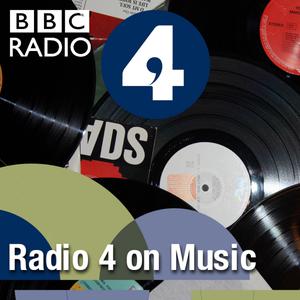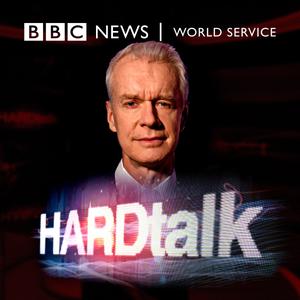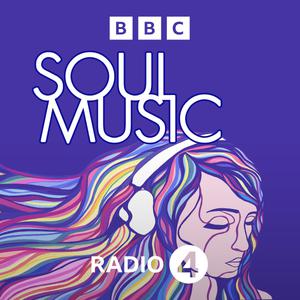
Radio 4 on Music
BBC
From Armstrong to Zappa - music documentaries from the Radio 4 archive.
- 29 minutes 18 secondsThe Voices of Robert Wyatt
Robert Wyatt has been recognised as a prog-rock drummer, jazz composer, avant-garde cornet player, artist and activist in a wheelchair. But, above all else, he has been known by one of the most instantly recognisable and distinctive voices of the last fifty years.
Forever associated with Shipbuilding, Elvis Costello's song written in reaction to the Falklands War, Wyatt's voice and the causes he gives voice to are intricately entwined.
This intimate radio portrait, in his own words, traces Wyatt's journey from the psychedelic excesses of Soft Machine (appearing both with Jimi Hendrix and at the BBC Proms), through the life-changing accident that has confined him to a wheelchair for almost forty years, to recent celebrated musical projects that are reaching new audiences.
Produced by Alan Hall. A Falling Tree production for BBC Radio 4.
17 September 2014, 7:00 am - 29 minutes 17 secondsJay-Z: From Brooklyn to the Boardroom
Ten years ago rap superstar Jay-Z was struggling to get a record deal after being spurned by every major label - so he started his own. A decade on, with 20 million CD sales under his belt, he is now a major music industry player, and currently reigns as president of the legendary Def Jam records.
He built on his success with lucrative sidelines in the fashion industry, a chain of bars, his own brand of vodka, and is also part-owner of a professional basketball team. Now some of America's biggest brands are hiring him in hope his business savvy can help them, too.
Finance guru Alvin Hall meets Shawn Carter a.k.a Jay-Z for an in-depth discussion charting the birth of his business empire and rise from the notorious Marcy Projects in Brooklyn to C.E.O’s office, revealing the story of a man who has become a brand in his own right.
This programme was originally broadcast on BBC Radio 4 on December 2, 2006.
Presenter: Alvin Hall Producer: Richard Fenton-Smith Editor: Tony Phillips
10 September 2014, 7:00 am - 56 minutes 18 secondsBeat Mining with the Vinyl Hoover
Broadcaster Toby Amies digs into the archives to discover the value and significance of old vinyl.
He uncovers a network of dealers and buyers, supplying a community of 'crate diggers' and 'beat miners' and a world in which samples from records bought for a few pence in a car boot sale can provide the basis for a million-selling hit.
3 September 2014, 7:00 am - 29 minutes 57 secondsKate Bush
In November 2005, Kate Bush broke a 12 year silence with the release of her double album 'Aerial', In this programme she gives a very rare interview to John Wilson in a special edition of Front Row, where she talks about why the album took so long to appear and tells some of the stories behind the songs.
27 August 2014, 7:00 am - 29 minutes 8 secondsConjuring Halie
Cerys Matthews celebrates the life of one of her musical heroines, the great gospel singer Mahalia ("Halie") Jackson, who died in 1972. Jackson became one of the most influential gospel singers in the world at the height of her popularity, inspiring singers like Aretha Franklin and Mavis Staples. But she was also one of the unsung heroes of the civil rights movement in America, described by the legendary historian and broadcaster Studs Terkel as one of the bravest people he'd ever met.
As a child she suffered illness, poverty and deprivation. The Church was her shelter. During the late 1920s, at the height of the great migration, she toured Illinois performing in churches. But it was in Chicago that she made her name and carved out a place for herself as the first professional gospel singer. She refused to sing secular music, a pledge she kept throughout her professional life. Even Louis Armstrong couldn't persuade her to sing jazz with him. By the 1950s and 60s, touring across Europe, she was being described as "the greatest spiritual singer alive." Throughout, she remained a close friend and comrade of Martin Luther King, travelling with him to the deepest parts of the segregated south and often singing at gatherings where he spoke including at the famous march on Washington.
In this programme Cerys shares her passion for Mahalia with another huge fan, Sir Tom Jones. She also talks to gospel singer Vermettya Royster and to the Reverend Stanley Keeble both of whom knew and played with Mahalia. We also hear archive recordings of the historian Studs Terkel talking with Mahalia in the years when they became close friends. We hear from blues and gospel writers Val Wilmer and Viv Broughton. As well as hearing her live performances.
Produced by Sarah Cuddon A Falling Tree Production for BBC Radio 4.
20 August 2014, 7:00 am - 29 minutes 2 secondsFela Kuti Comes Home
Fela Kuti is Africa's most famous musician. Before his death in 1997 he recorded nearly 50 albums and invented his own genre of music: Afrobeat. In the 70s and 80s his legendary club in Lagos was famed for housing the best live band on Earth. As witnessed by James Brown, Stevie Wonder and Paul McCartney. But there was more to Fela Kuti than ground-breaking music. He was also a political revolutionary who spent his life strongly criticising successive military regimes in his native Nigeria. While his contemporaries would sing in more general terms of oppression, Fela singled out his targets, personally naming them in songs which became popular all over Africa. It wasn't long before he was a hero to many working class Nigerians. But his taunts didn't go down so well with the authorities. Nor did his controversial lifestyle: he openly smoked marijuana, declared his home an independent state of Nigeria and married 27 women on the same day. The story goes he was the most arrested person in Nigerian history. He appeared in court hundreds of times, had spells in prison and permanently suffered from his injuries after regular beatings at the hands of the military and police. Fela believed they were also responsible for the death of his mother, who was thrown from an upstairs window when his home was stormed by 1000 soldiers. In 2009 his incredible story was turned in to a successful Broadway musical and this April it performed in Lagos for the first time. Fela Kuti was coming home. But while the rest of the world is finally paying attention to this musical and political revolutionary why will you struggle to hear any of his music on Nigerian radio? Have they forgotten Fela? Or do the powers that be still find his music offensive? Radio 4 visited Lagos to find the answers.
13 August 2014, 5:59 am - 29 minutes 38 secondsFront Row - Neil Young
In a rare interview, Neil Young talks to John Wilson about his album 'Americana' and his long, somewhat unpredictable career. He talks about his politics, the current state of the protest song and the joys of playing with his longterm sparring partners Crazy Horse.
6 August 2014, 7:00 am - 28 minutes 22 secondsYoussou N'Dour at 50: Africa's Greatest Star
Robin Denselow profiles the musician Youssou N'Dour as he reaches his 50th birthday, and travels to Senegal to interview the singer in his home city of Dakar.
Denselow analyses not just his music but the way N'Dour has used it for the benefit of his country and his continent. He had huge success with the duet 7 Seconds with Neneh Cherry in 1994, but he has been making music for nearly 40 years and has collaborated with many international artists.
Contributors include Peter Gabriel, Branford Marsalis, DJ Charlie Gillett and Senegalese band Orchestra Baobab.
A Unique production for BBC Radio 4.
30 July 2014, 7:00 am - 29 minutes 33 secondsMy Wizard
John Aizlewood examines the oft derided genre of Progressive Rock, a catch all term for a variety of bands from Pink Floyd to Yes to Hawkwind to Jethro Tull. He talks to Floyd's David Gilmour, Rick Wakeman of Yes and Keith Emerson, and ponders the subtle difference between 'Prog' and 'Progressive', before asking the difficult question - was any of it any good?
23 July 2014, 7:00 am - 29 minutes 20 secondsBilly Preston: That's the Way God Planned It
Billy Preston was a musical genius. A child prodigy, he was first seen as a small boy performing live on national TV with Nat King Cole. He was a star of the Hammond Organ, an accomplished dancer and a talented singer-songwriter. He is the only person 'officially' recognised as the fifth Beatle, although that title would turn out to be more of a millstone than a milestone. By the 1970s he'd written three number one singles, toured and recorded with the Rolling Stones and collaborated with some of the biggest names in pop: Bob Dylan, Ray Charles, Little Richard, Eric Clapton, Sly Stone, the Jackson 5 and Aretha Franklin to name just a few. His musical career was out of this world but his personal life was a disaster. He spent much of his life battling with drugs and even ended up in jail. Fellow keyboard player and fan Rick Wakeman explores his incredible story. With contributions from the likes of Jools Holland, Bill Wyman, Pete Townshend and many more, this documentary also reveals - for the first time - the secret he spent his life suppressing. A secret his former manager Joyce Moore believes fuelled his personal problems.
16 July 2014, 7:05 am - 28 minutes 51 secondsR.E.S.P.E.C.T - The Art of Backing Vocals
Nick Barraclough pays tribute to arguably one of the least recognised jobs in pop, that of the backing vocalist. Tracing the evolution of vocal harmony from Medieval canon through to Gladys Knight and the Pips, he draws a straight line from the ‘Fa-la-las’ of Tudor song through to 50s doowop with the help of arranger and musicologist Harvey Brough. Along the way we'll hear examples of the art from The Shangri-Las to Steely Dan, and find out what happens when session singers mover their larynxes.
9 July 2014, 7:00 am - More Episodes? Get the App
Your feedback is valuable to us. Should you encounter any bugs, glitches, lack of functionality or other problems, please email us on [email protected] or join Moon.FM Telegram Group where you can talk directly to the dev team who are happy to answer any queries.
 Conan O’Brien Needs A Friend
Conan O’Brien Needs A Friend
 Club Random with Bill Maher
Club Random with Bill Maher
 Football Weekly
Football Weekly
 Desert Island Discs
Desert Island Discs
 HARDtalk
HARDtalk
 Soul Music
Soul Music